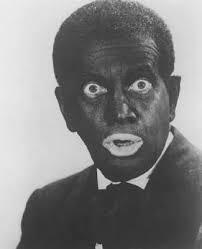
CHETRY: Thirty-eight minutes past the hour. Welcome back to the most news in the morning. The Shirley Sherrod controversy and the explosive mix of race, politics and the viral age of the internet. President Obama spoke with Shirley yesterday and expressed regret for the turmoil that she endured this week. A short time ago we asked her how she thinks the White House is handling race issues in general.
(BEGIN VIDEO CLIP)
SHERROD: I'm assuming this administration feels, too, that, you know, if they highlight issues of black people, the country would perceive it as something negative. I know they probably have to struggle with that, but I think they're wrong.
(END VIDEO CLIP)
CHETRY: Well, joining us now from Baltimore, Sherrilyn Ifill. She's a law professor at the University of Maryland and a civil rights lawyer. Welcome.
SHERRILYN: Thanks for having me.
CHETRY: Sure. And also from Louisville, Kentucky, this morning, Boyce Watkins, a professor at Syracuse University and founder of yourblackworld.com. Good to see you as well, Boyce.
BOYCE WATKINS, FOUNDER OF YOURBLACKWORLD.COM: Yes, same here.
CHETRY: Sherrilyn, let me start with you because I know you're pretty fired up about all that's gone on with the Shirley Sherrod controversy and you say that the president has to do more on race. You're hearing a lot of anger from the African-American community. Some might say though he has so much on his plate, you got the oil spill, the struggling economy, two wars. What more do you think the president himself should be doing when it comes to the issue of race relations?
IFILL: Well, I think the president was hoping -- and I think it is understandable that what he does on race would be in his substantive policies, the revitalized civil rights division, what he's trying to do in extending unemployment benefits, what he's tried to do in stimulating the economy and so forth and even the real and sincere efforts of the USDA to deal with backlogged civil rights claims.
So I think the president was hoping that substantive policy would be enough. But the reality is, race happens. It happened last summer with the Gates incident. It's happened with Shirley Sherrod. The right has been -- the hard right in particular -- has been very careful to try and present the entire Obama administration and the project of this first black president as being an exercise in reverse racism.
And so race is also a matter of public discussion and consciousness and I don't think the Obama administration can avoid it. The ironic piece is that I think most Americans trusted President Obama to be the person to help kind of navigate us through these shoals.
After that race speech toward a more perfect union in Philadelphia --
CHETRY: Right.
IFILL: I think that really settled it for many Americans. And so I think the Obama administration actually should be more confident about having the president be able to speak explicitly to the issue of race.
CHETRY: Well, Boyce, so when you talk about confidence, and when Sherrilyn brings up confidence, I mean, the Henry Gates controversy was not -- I mean, you really can't blame the conservatives for that and the president said when asked at a news conference, "the Cambridge police acted stupidly."
And then he said before knowing the full story of what happened. In this situation you had the NAACP and some would argue the Department of Agriculture by extension the administration also being quick to rush to judgment turning out that they ended up doing more damage, regardless of where the tape originally came from, just about how the administration deals with race. Two for two, it's actually turned out to be much worse for the president.
WATKINS: Well, let's be clear. Race is a 400-year-old problem for our country and you're not going to have progress without struggle. The election of President Obama was a landmark achievement for our country. We deserve tremendous credit for the fact that many Americans, white and black and other ethnicities decided that the best man for the job, the best person for the job was an African- American and so that's a good thing.
But then at the same time Obama's election has brought out some of the ugliest dimensions of our nation when it comes to race, many of those unresolved issues that we failed to confront. And the issue here is that when you talk about the delicate surgery, the delicate social surgery that needs to occur in order for us to deal with race, you can't do that surgery with a rusty butter knife.
And to some extent that's what the president did last year when he addressed the Henry Louis Gates case without knowing all the facts, without being very careful about how he hit the issue. And the result was that it was a political disaster. He lost a lot of white support.
It was the seminole moment when the tea party became much stronger than it was at that time. That was when Obama became identified as a radical black man which he certainly is not. And so ultimately the Henry Louis Gates case put the president in a cage where he literally became almost petrified to deal with the issue of race in public.
So when you saw more substantive issues occur like the shooting of Oscar Grant, the shooting of Sean Bell, the shooting of Ianna Jones, things that the president should have been involved with, he was afraid to touch those things. So I think that a conversation on race must occur in the United States but the president is not necessarily the person positioned to best lead that conversation.
In fact, Shirley Sherrod has impressed me so much that I think she should be involved in helping to lead that conversation because we have to have that conversation without a political agenda.
CHETRY: And that's interesting. So you believe that it is really not the president's place to take up this issue or lead the discussion. And I want to ask you about this, Sherrilyn. Because Shirley did talk to us this morning, gave her opinion that perhaps the administration feels that if it highlights issues of black people, that the country would perceive it as something negative. She thinks that's not necessarily the case but she's talking about perception. What do you make of that? Sherrilyn? IFILL: I think there are two pieces here. I think there are two pieces. Number one, the problem with what happened with the Henry Louis Gates matter and the beer summit last summer was that what was a symptom of a larger problem of race and encounters of African- Americans with the police was treated for political expediency as a personal misunderstanding between two individuals that the president then brought together for beer and nuts.
What was lost was the opportunity to talk about the larger picture. And that's what the president can speak to, including in this Shirley Sherrod matter. Which also is being personalized. I think Mrs. Sherrod has, to her credit, tried to draw attention to the larger issues.
This is a woman who knows quite a bit about rural land loss. She knows about black land loss and she clearly knows about white land loss. She's got a wealth of experience that I think she wants to give to the president about what it's like to be living in rural America in the south. And that to me is the critical place at which the president should be working and speaking and hearing from people like Shirley Sherrod.
So it is not about, you know, just leading an abstract conversation. It is about substantive policies that have to do with the president's authority and power to address the issue of race in this country.
CHETRY: And Boyce, there is a startling Quinnipiac University study that was out about this. It was the president's approval rating. And there was just a stark contrast between black and white. 91 percent of blacks approve of the president right now, whereas only 37 percent of whites do.
And then you dig a little deeper in those numbers, Boyce, and some younger Americans who were super energized about the election, Independents as well, seem to be finding themselves turning their backs on the president, support eroding in these two categories. And in this match-up that Quinnipiac did, especially among young people, they would vote for a generic Republican over the president come 2012. What happened?
WATKINS: Life happened. America happened.
The reality is that whites and blacks have always had divergent perceptions on almost every issue that relates to race. You go back to the O.J. Simpson trial and you polled whites and blacks, you -- you got two different results. If you look at any situation involving a black male athlete, say Michael Vick, you poll whites and blacks, you get divergent outcomes there as well.
The reality is that whites and blacks don't see the world as the same. The bigger problems in America are not so much racism, meaning I hate you because of the color of your skin. The bigger problem is -- are things like racial inequality, which is a byproduct of racism, where whites and blacks have different realities when it comes to access to education, access to economic opportunities, and -- and all these other things that go on in -- in our society, like mass incarceration where black men are actually arrested and incarcerated at a rate that's five times higher than the rate was in South Africa during the height of apartheid.
So the point is that America is a two-tiered society when it comes to race, and -- and if we don't deal with this issue directly and in an honest way, we're going to always have these problems.
I don't know if the president is necessarily the person who can really do that. I don't know if he's a person that wants to do that. I don't know what's in his heart and mind. But I know there are a lot of good Americans, white, black and otherwise, who want to address this issue, and -- and I call on those people to -- to attack it.
CHETRY: Well, we're scratching the surface, certainly, but I'm glad we got to get both of your opinions about it this morning.
Sherrilyn Ifill and Boyce Watkins, thank you.
WATKINS: Thank you.
IFILL: Thank you.


















































